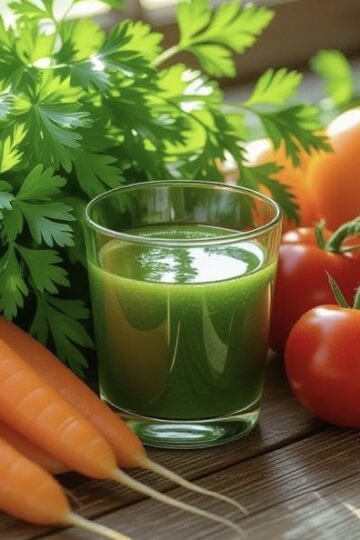Cancer hates a body with strong defenses: a robust immune system spots neoantigens and destroys tumors via immunoediting, while apoptosis and senescence stop damaged cells from dividing. Healthy mitochondria block the Warburg effect by favoring oxygen over sugar metabolism, and autophagy cleans up faulty parts during fasting. Cut sugar and arginine to starve cancer, eat […]
Tag: cancer prevention
High-Dose Vitamin C: H2O2 Kills Cancer Cells
High-dose vitamin C, given intravenously, acts as a pro-oxidant to generate hydrogen peroxide (H2O2), which selectively kills cancer cells by inducing oxidative stress. Unlike normal cells, cancer cells have high iron levels and rely on aerobic glycolysis, making them vulnerable to H2O2 damage via the Fenton reaction. This triggers apoptosis and ferroptosis, disrupting glycolysis, the […]
Grilled Meat Cancer Risk: Causes, Tips & Prevention
Cooking meat at high temperatures through grilling, barbecuing, or frying can produce carcinogens like heterocyclic amines (HCAs) and polycyclic aromatic hydrocarbons (PAHs), which may increase cancer risk. These form when amino acids, creatine, and fat in red or processed meats react under heat, especially in charred or well-done portions. Studies link these to colorectal, pancreatic, […]
Top Herbs to Prevent Cancer: Natural Remedies
Certain herbs and compounds may help prevent cancer by targeting tumor growth, metastasis, and inflammation while boosting the immune system. Turmeric’s curcumin fights oxidative stress and induces apoptosis in breast and prostate cancer cells, enhancing chemotherapy. Ginger’s gingerol reduces colorectal cancer risk and nausea. Garlic’s allicin and sulfur compounds detoxify carcinogens, preventing lung and pancreatic […]
Breast Cancer Prevention: Key Tips & Strategies
Breast cancer prevention starts with understanding risk factors and making smart choices. Non-modifiable risks include age, family history, and gene mutations like BRCA1 or BRCA2, especially in women of Ashkenazi Jewish descent. Modifiable risks involve obesity, alcohol, and smoking—maintaining a healthy weight, limiting alcohol to one drink daily, and quitting smoking can lower your risk. […]
Parsley Health Benefits: Boost Wellness with This Nutrient-Rich Herb
Parsley (Petroselinum crispum), a nutrient-rich herb, offers numerous health benefits due to its vitamins, minerals, and bioactive compounds. Packed with vitamins A, C, K, folate, and fiber, it supports bone health, digestion, and heart health. Its antioxidants, like apigenin and myristicin, fight oxidative stress and inflammation, potentially reducing risks of cancer and chronic diseases. Parsley […]
Allicin in Crushed Garlic: Health Benefits and Science
Garlic, known scientifically as Allium sativum, has been a kitchen staple and medicinal go-to for centuries. At the heart of its power is allicin, a sulfur-containing compound that springs to life when you crush or chop a clove. This article digs into everything you need to know about allicin—from how it’s made to its health […]
Fontainea Picrosperma
Fontainea picrosperma, also known as the blushwood tree, is a plant species native to Australian rainforests. Its extract, EBC-46, has shown potential for its anticancer properties in preclinical studies. Further research and clinical trials are needed to confirm its effectiveness in humans. Long Version Fontainea picrosperma, commonly known as the blushwood tree, is an intriguing […]
Elderberry: Exploring Health Benefits, Risks, Uses, Effectiveness
Elderberry is a fruit that comes from the Sambucus nigra plant, a small tree or shrub that grows in temperate regions around the world. Elderberries have been used for centuries for their medicinal properties, and recent studies have shown that they may have many health benefits. In this article, we will discuss the health benefits, […]
Will Pizza Decrease the Risk of Esophageal Cancer? | Q&A
There is currently no evidence to suggest that pizza specifically decreases the risk of esophageal cancer. While some studies have found that certain components of pizza, such as tomato sauce and lycopene, may have a protective effect against certain types of cancer, there is no conclusive evidence to suggest that consuming pizza itself can reduce […]









